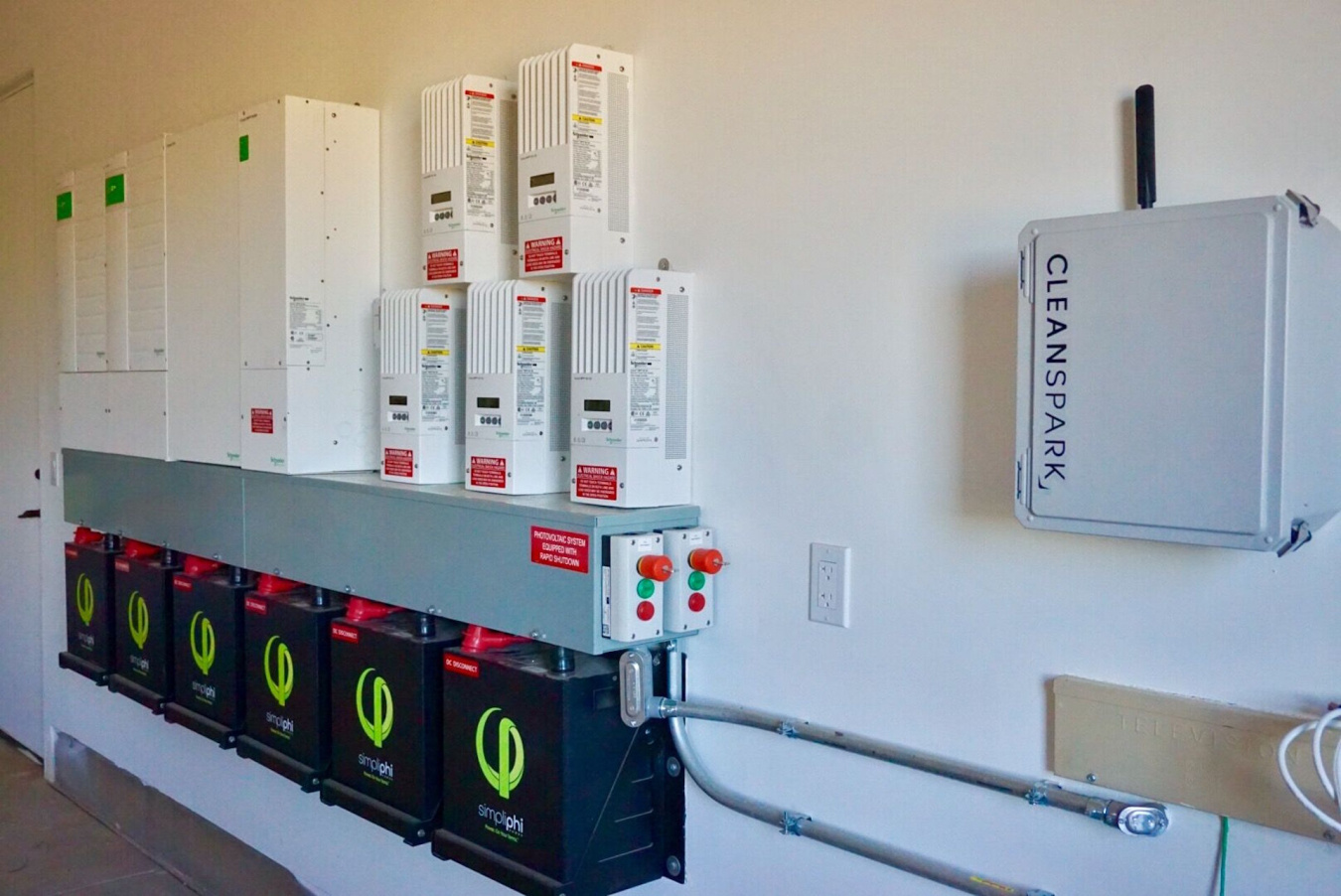Should I Get Battery Storage for My Solar Energy System?

This battery system is paired with a residential rooftop solar array in Arizona. Photo by Christine Bennett.
Imagine you’re home on a stormy night, watching TV with the washing machine running, and all of a sudden the power goes out. Now imagine the same scenario, except you have a rooftop solar energy system with battery storage. When the power goes out in your neighborhood, you’d be blissfully unaware.
A common myth about solar power is that you can count on it only when the sun is shining. You do need sunshine to generate electricity with solar, but what about the times when the sun isn’t shining? Most people rely on electricity from the power grid to supplement their solar-generated power. But residential solar energy systems paired with battery storage—generally called solar-plus-storage systems—provide power regardless of the weather or the time of day without having to rely on backup power from the grid. Here are the benefits of a solar-plus-storage system:
- Around-the-clock power. If you use the utility billing mechanism known as time-of-use, and don’t have a solar energy system, your electricity in the evening is likely more expensive because of the higher demand on the system. With battery storage, however, you can use electricity generated during the day later on, rather than relying on the utility for power. This is also useful if you live in an area with frequent power outages.
- Pocketbook protection. If your utility raises electricity rates, you can avoid that with a battery. Battery storage lets you leverage low-cost energy that has already been generated and stored, ensuring your rates stay low and don’t affect your monthly budget. In some cases, you can even sell the energy you’re storing back to the grid when the rates are higher and bank the profit.
- Better monitoring. A solar-plus-storage system can help you to better track the energy your system is generating through monitoring capabilities, providing an enhanced level of transparency and precision. These systems allow you to track the energy your home is producing and using in real time.
- More energy self-sufficiency. While most jurisdictions require homes to be connected to their local utility even if they don't use any electricity from the utility, a solar-plus-storage system takes you closer to “off the grid” status. Battery storage means you don’t have to rely on your utility to deliver electricity to your home most days of the year. And you can always keep some battery capacity in reserve, so that if the power goes out in your neighborhood, your house will be the one with the lights on.
You may be sold on the merits but curious about the costs. A solar-plus-storage system costs about $25,000–$35,000, depending on the size of the battery and other factors. It is easier and cheaper to install the panels and battery at the same time. But if you’ve already installed solar panels and want to add storage, you can: The battery will cost anywhere from $12,000 to $22,000. Ask your solar installer if they can add a battery to your system. If you purchase a battery on its own or a solar-plus-storage system, you will be eligible for federal tax credits. Some states provide additional solar battery incentives.
To learn more about resources available to consumers, including guidance on demystifying the solar installation process, check out the Homeowner’s Guide to Going Solar.


No comments:
Post a Comment